1998 Student Kidnapping is Human Rights Violation
Prabowo Subianto is hoping to erase his sins in relation to the 1998 kidnappings. Gross human rights violations will not be a priority.
maaf email atau password anda salah

Prabowo Subianto is hoping to erase his sins in relation to the 1998 kidnappings. Gross human rights violations will not be a priority.

The obligation to obtain halal certification leads to higher economic costs and corruption. Labeling products that are non-halal would be more efficient.

Jokowi’s son-in-law, Bobby Nasution is caught up in alleged bribery involving a mining permit in North Maluku. He is accused of selling his influence.
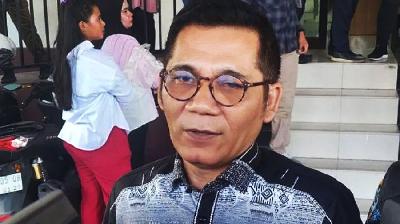
Former North Maluku Governor Abdul Gani Kasuba acknowledged meeting with Bobby Nasution but claimed he gained no advantage from it.
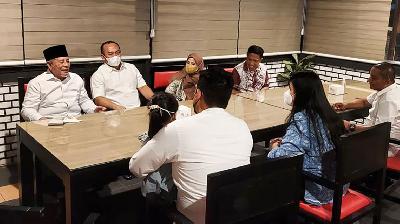
Bobby Nasution is suspected of managing the Medan Block nickel mine since 2021. He met with Abdul Gani Kasuba before becoming the Mayor of Medan.
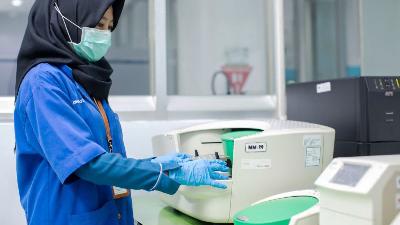
Halal certification is slow due to inadequate supporting infrastructure. It has the potential to trigger a high-cost economy.

The rupiah is weakening amid the power transition, with global factors also exerting heavy pressure.

Driven by corporate demand, helicopter business opportunities continue to grow. Operators are increasingly expanding their fleets.

The phrase “human rights” was lost from Prabowo Subianto’s inauguration speech.
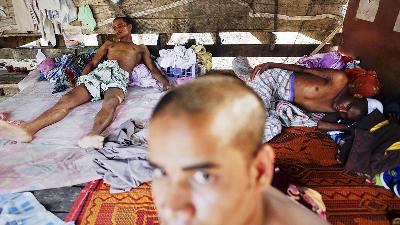
Rohingya refugees in Thailand, Malaysia, and the Philippines are treated differently than those in Indonesia.
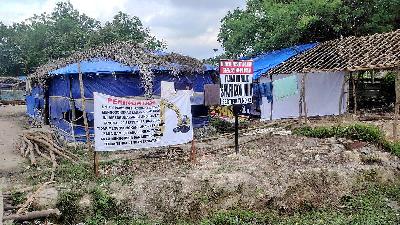
The Rohingya refugees living in Pekanbaru have more freedom to move around and reside in lodgings. Their children can also attend school.
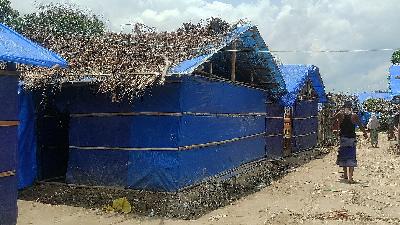
The increasingly overcrowded refugee camps demand improvements in the mechanisms for handling Rohingya refugees. The number of refugees continues to rise.

Several Rohingya refugees successfully built their careers in various fields. They continued to work and raised awareness about the plight of displaced Rohingya refugees.
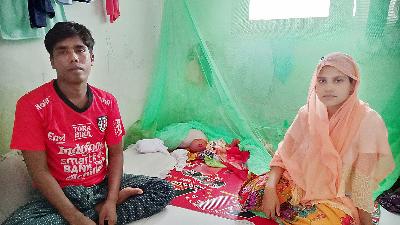
Rohingya refugees are still living in several inadequate temporary shelters in Aceh.

There is an increasingly real threat to Indonesia’s biodiversity. It cannot be overcome through empty slogans at international forums.
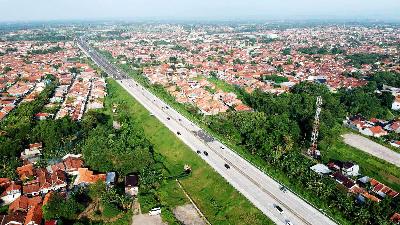
The Joko Widodo administration leaves a heavy burden for state-owned enterprises. Many projects result in big debts.
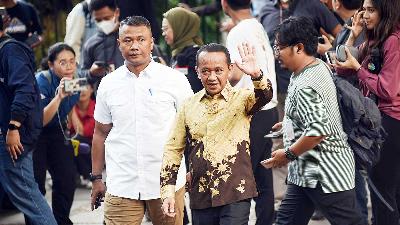
President Jokowi entrusted his confidants to join Prabowo’s cabinet. Several ‘volunteers’ also received positions.

Prabowo Subianto formed a large cabinet to accommodate the interests of parties, businessmen, and his supporters. Mining entrepreneur Haji Isam is suspected of proposing several ministerial candidates.
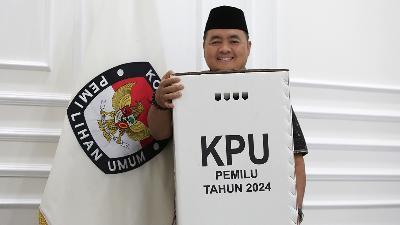
KPU Chair Mochammad Afifuddin on turbulence within his institution following the dismissal of Hasyim Asy’ari, and the Constitutional Court’s decision on the regional head elections.
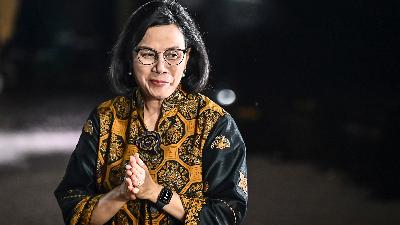
Sri Mulyani and several economic ministers from Jokowi join Prabowo’s cabinet, with encouragement from two former presidents.

South Kalimantan Governor Sahbirin Noor is suspected of receiving commissions on three projects in the e-catalog. He has not been seen since being named a suspect.
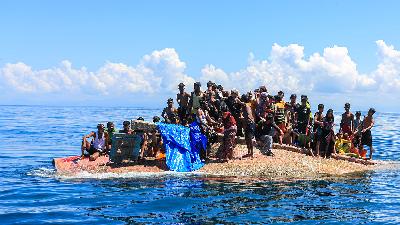
Uncertain future looms over Rohingya refugees in Indonesia. They are also struggling with various limitations.

The KPK uncovered alleged embezzlement of the Taspen pension fund involving Sinarmas Sekuritas. The result of poor supervision by the OJK.

A reader’s letter suggests authorities seek ways for safe and efficient logistics transportation, in order to minimize traffic accidents.
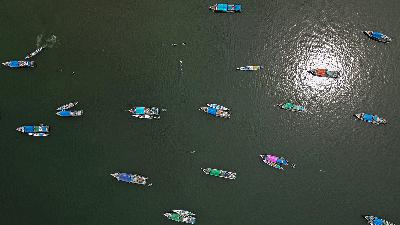
The family members of some ministers enter the fishery business. Other problems, such as the activity of illegal foreign vessels and the abuse of crew members, still prevail.

Explanations from State Secretary Minister Pratikno and Maritime Affairs and Fisheries Ministry on fishery business and the case of illegal ships in eastern Indonesia.
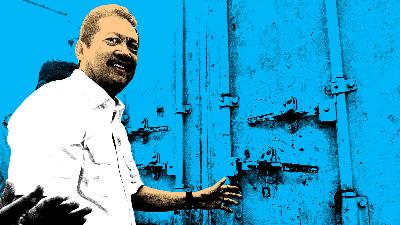
Minister Sakti Wahyu Trenggono revives a shutdown port. There is indication that the minister’s son is involved in the fisheries business.
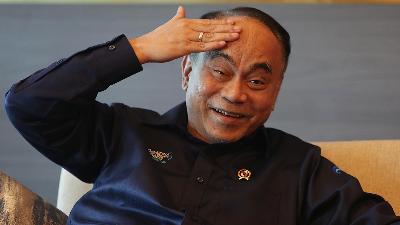
Tempo’s interview with Minister of Communication and Informatics Budi Arie Setiadi about Jokowi’s campaign before the end of his tenure.

Life is not always about science and philosophy. This is where literature shows its value.
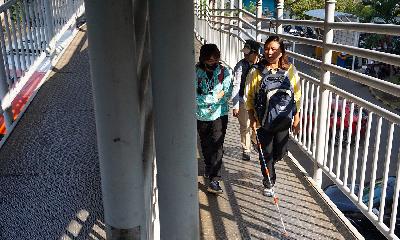
Tempo accompanied several differently-abled people as they navigated public transportation in Jakarta.
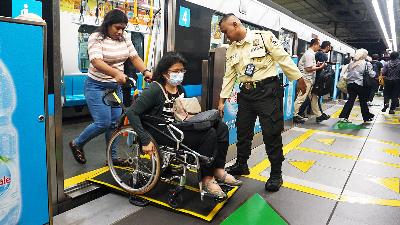
Jakarta is striving to provide inclusive transportation, but challenges remain, from funding issues to construction oversight.

Instead of paying its debts, the Bakrie Group is suing 12 creditors. This could become a bad precedent for the investment climate.
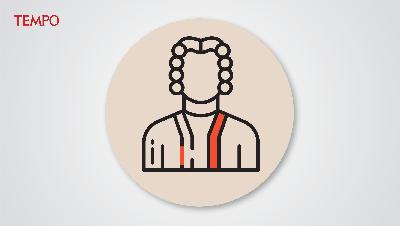
The contest for the selection of the Supreme Court Chief Justice is heating up. There are indications it is riddled with the interests of the government and tycoons.
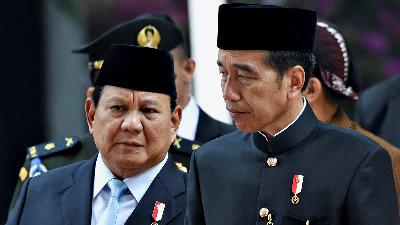
Before Jokowi’s term ends, the Presidential Palace is maneuvering to provide cover for Gibran. This includes erasing traces of the Fufufafa account as well as interfering in the formation of Prabowo’s cabinet.
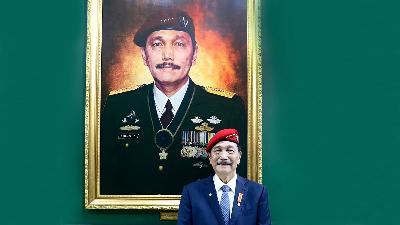
Luhut explains his close ties with Jokowi, and the plans of the president-elect Prabowo. This is his first interview with Tempo after the one on the Panama Papers eight years ago.
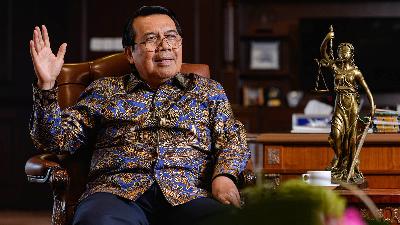
Supreme Court Chief Justice Muhammad Syarifuddin uses artificial intelligence to handle cases. Case brokers continue to be a threat.
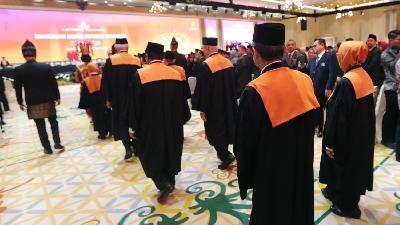
The race for the position of Chief Justice of the Supreme Court is heating up amid a flurry of allegations against certain candidates. There is suspicion of backing from business circles.

Indonesia and other countries continue to oppose the European Union’s Deforestation Regulation. The European Commission proposes a delay.

VIVA Group is facing a restructuring process under a debt payment suspension scheme and is threatened with bankruptcy. There are maneuvers to lobby creditors and reduce debt.
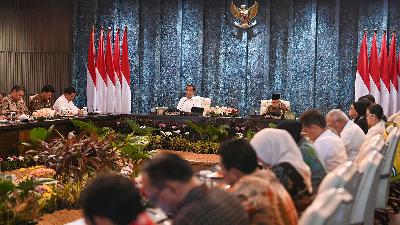
Jokowi is preparing for the incoming Prabowo-Gibran administration starting in late February 2024. He hopes that Prabowo can continue his programs.

Indonesia’s economy and financial markets are once again facing volatility stemming from China and the Middle East, leaving no respite for investors.

Power is never without crisis. Tumapel shows power as a story of unending antagonism.

With old faces still occupying more than half the seats, can DPR members be trusted to speak up and truly represent the people’s voice?
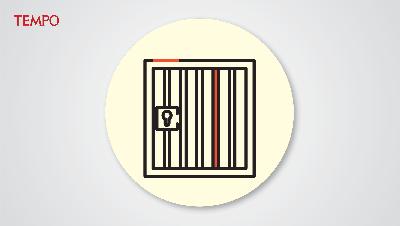
The police arrested a drug baron who was operating from inside a prison. It is a chronic problem that remains unsolved.

The partnership between Riau regional company and Kingswood Capital Ltd resulted in criminal charges, with two top executives now facing allegations of embezzlement.
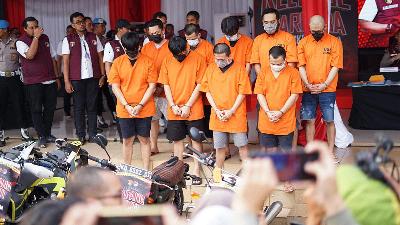
Hendra Sabarudin’s drug network distributed methamphetamine from Tarakan prison starting in 2017, allegedly aided by police and prison guards.

Egianus Kogeya quietly freed Susi Air pilot Phillip Mark Mehrtens. His hope to trade the pilot for Papua’s independence failed.
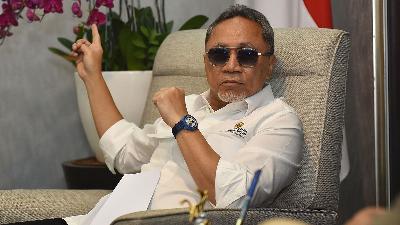
Trade Minister Zulkifli Hasan on the issues ranging from sea sand export policy to Prabowo Subianto’s bureaucratic management style.
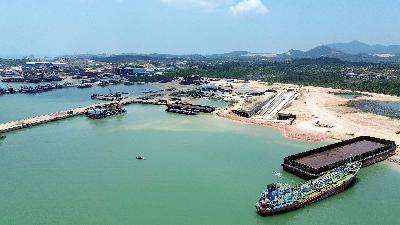
Dozens of companies are seeking permits to process marine sediment. They include businessmen, regional head candidates, and former cabinet ministers.
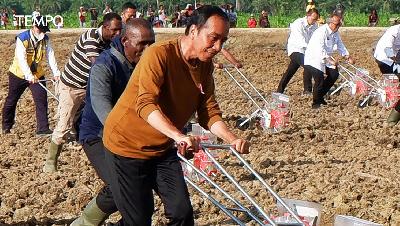
The food estate projects in Merauke are at risk of failure. There are suspicions about the way the projects are shared out.
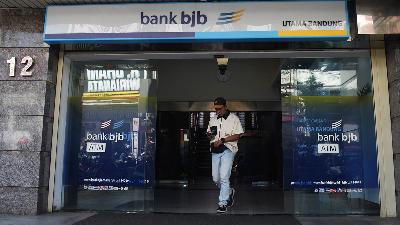
The KPK named five suspects in the Bank BJB advertising budget corruption, but it has yet to implicate high-ranking officials in the West Java Provincial Administration.
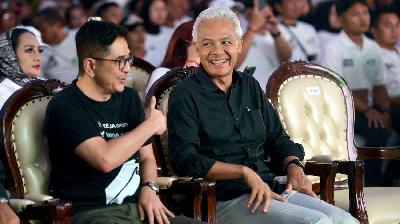
Arsjad Rasyid and Anindya Bakrie both claim support from regional Kadin branches. Legal battles continue.

Anindya Bakrie ousts Arsjad Rasjid from the position of General Chair of the Indonesian Chamber of Commerce and Industry (Kadin). The Palace’s support shifted.
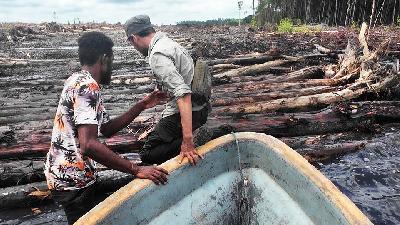
Two food estate projects are simultaneously being launched, targeting 2.29 million hectares of forest and land in Merauke. There are intrigues involving Prabowo and Jokowi. This report is part of a collaborative coverage and research initiative by Tempo, the Pusaka Bentala Rakyat Foundation, and Trend Asia.
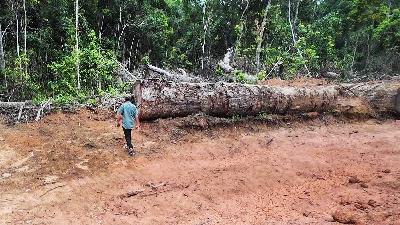
The rice paddy development program will sacrifice 1.02 million hectares of customary land in Merauke. It will also annihilate biodiversity.

The Fed and Bank Indonesia cut rates, allowing the banks to gain maximum profit.
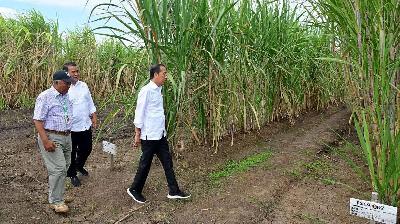
Preparing 2.9 million hectares of land under the food estate program in Merauke, South Papua, the government aims to achieve rice and sugar self-sufficiency within three to four years. Mirroring the previous failed food estate initiative.

Masyhur, or the renowned, exist because of the blessings of mastur, the concealed. It is interpreted as duality rather than dualism.
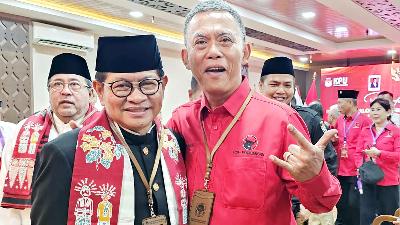
Two rivals in Jakarta’s upcoming regional elections are sharpening their winning strategies. There is a rift in the Indonesia Onward Coalition.
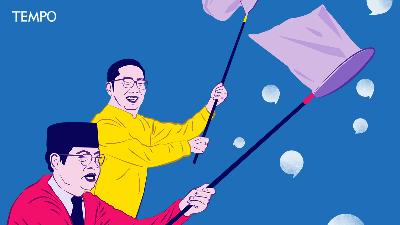
Gubernatorial candidates are trying to win over the votes of Anies Baswedan supporters in the Jakarta regional election. Jokowi reportedly shifted his support.
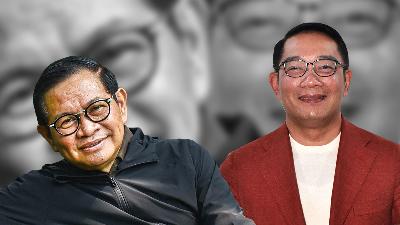
Pramono Anung and Ridwan Kamil shed light on the dynamics surrounding their appointments as Jakarta gubernatorial candidates.
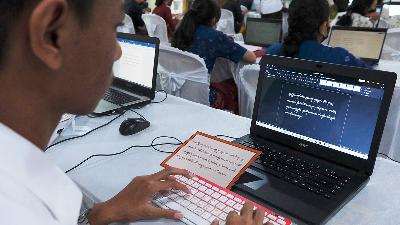
The Language Agency uses artificial intelligence to preserve endangered regional languages, starting with the creation of a vast corpus data.

The business of digital signatures and e-stamps is booming, as regulations push digital certificate providers to rake in profits.
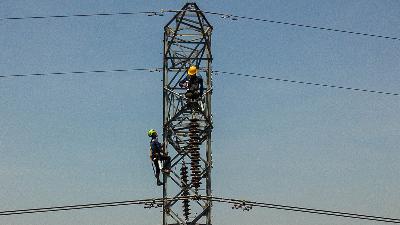
Foreign companies are urging President Joko Widodo to implement the power wheeling scheme. The private sector is pushing to hasten the energy transition.

If matters are left to those who are not expert, we are destined to face a destruction.

The DPR rejected all candidates for Supreme Court and ad hoc human rights justices put forward by the Judicial Commission. There needs to be transparency in the selection process.
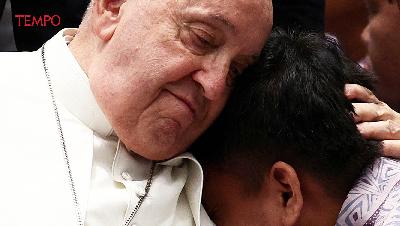
Pope Francis was enthusiastically welcomed on his visit to Indonesia. It was the simple journey of a religious leader and campaigner for social justice.
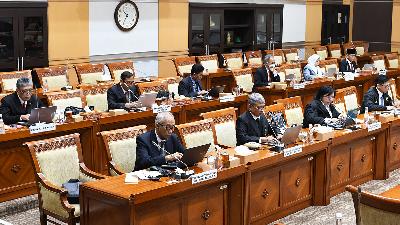
Commission III of the House of Representatives rejected all the Supreme Court judge candidates proposed by the Judicial Commission. The rejection allegedly was due to their favored candidate failed to pass.
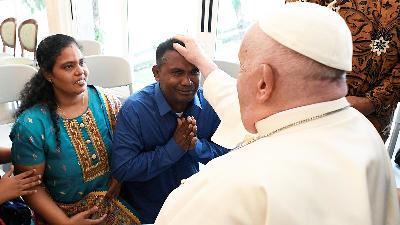
The first agenda item on Pope Francis’ visit was to meet with marginalized communities. The Pope encourages Catholic Church leaders to welcome Muslim refugees.
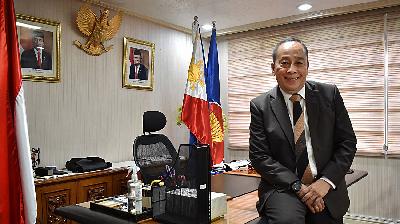
Former Governor of the National Resilience Institute and Indonesian Ambassador to the Philippines, Agus Widjojo, on the revision of the Indonesian Military Law.
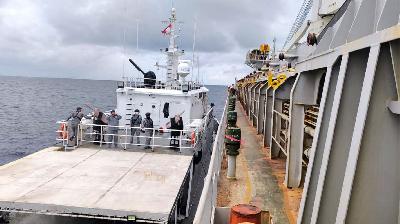
A biomass plant has the potential to clear 693,795 hectares of Gorontalo’s forest. The raw material for the wood pellets intended for export comes from deforestation.

The free lunch program needs to be selective that the provinces with high prevalence of malnutrition should be put on the priority list.

The culinary businesses of Gibran Rakabuming and Kaesang Pangarep are fading. This seems to contradict their massive financing.

Persis Solo attracts substantial funding since Kaesang Pangarep acquired its shares. Sponsors tend to be influenced by the prominence of the owner.
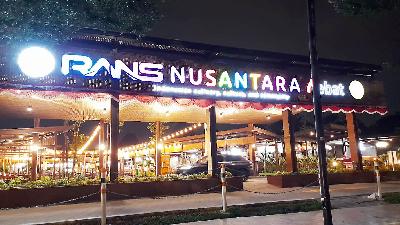
Startups owned by Gibran Rakabuming Raka and Kaesang Pangarep are flooded with venture capital injections. Assisted by a presidential advisor.

A photograph of a private jet window exposes Kaesang Pangarep and Gibran Rakabuming Raka’s connections to a network of business actors.
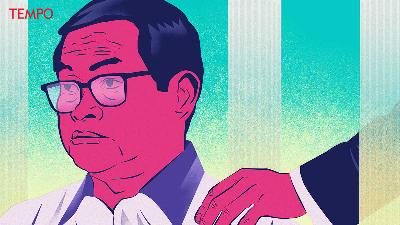
The PDI-P canceled its plan to nominate Anies Baswedan for the Jakarta gubernatorial election. Pressure came in the form of legal cases and revisions to the MD3 Law.

The Melemba ethnic group in Ende, East Nusa Tenggara, contributes to conserving the habitat of the Flores eagle. It is part of the indigenous community’s wisdom.
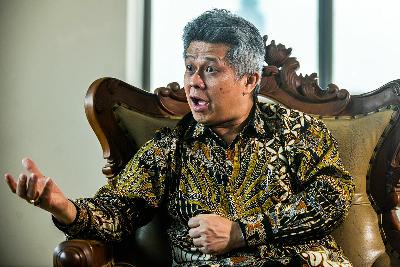
Chair of the Presidium of the Indonesian Bishops' Conference (KWI) Monsignor Antonius Subianto Bunjamin spoke about the preparations for Pope Francis’ visit.
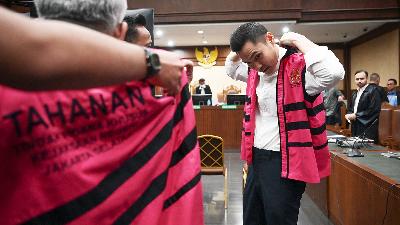
The Attorney General’s Office named 23 people as defendants in a tin corruption case in Bangka Belitung. A high-ranking National Police officer is involved.
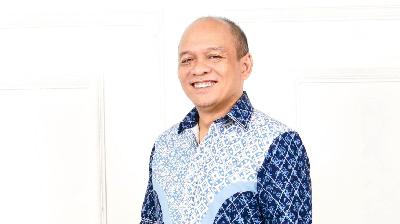
The defendant, Tamron Tamsil alias Aon, allegedly played a central role in the tin trading corruption case. He is close to the police. His lawyer explains.
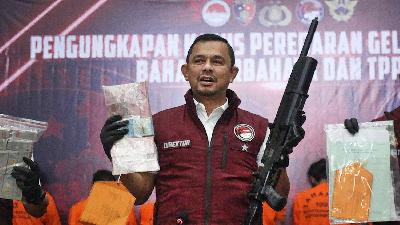
The trial of the defendants in the tin corruption case revealed the involvement of Brig. Gen. Mukti Juharsa. He evaded scrutiny from the Attorney General’s Office.

Wong cilik or commoners and Ratu Adil or the Just Ruler are terms that come to life from a certain mindset. Has that mindset begun to change?
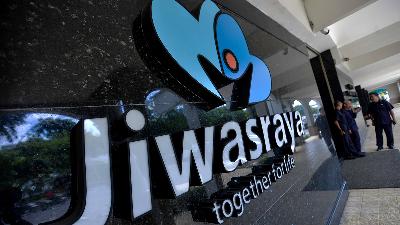
The government plans to liquidate Jiwasraya after the settlement of policyholder claims. A massive deficit still hangs over the company.
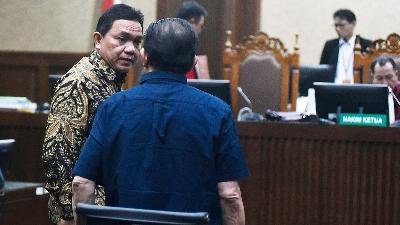
The selection process for BPK members is under scrutiny following multiple instances of its leaders being implicated in corruption cases. The selection process is deemed to be lax.

Commission XI of the House of Representatives will elect five BPK members. Several political parties are forming a coalition to support their strongest candidates.
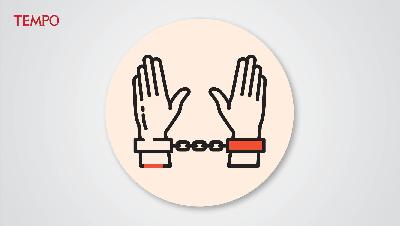
The police continue to resort to brutality to silence demonstrators. This is a violation of human rights.

The name of Brig. Gen. Mukti Juharsa is implicated in the tin corruption case. The Attorney General’s Office must not be soft and slow.
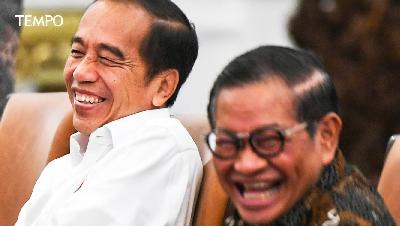
The Constitutional Court returns politics to the people. But voters will once again be spectators of a banal political circus.
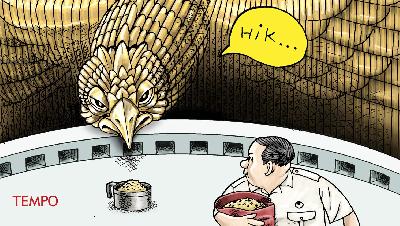
Cartoon: Yuyun Nurrachman
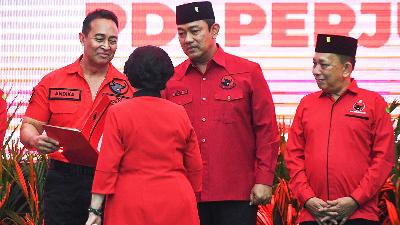
The Indonesian Democratic Party of Struggle (PDIP) strives to counter candidates supported by the Palace. It is an early projection for the 2029 General Elections.

Police act excessively in handling the demonstrations nationwide in support of the Constitutional Court decision. Where are the President and Vice President?

The 2025 State Budget’s Financial Note illustrates Prabowo Subianto’s financial policies. There is hope for economic improvements.

The transition to nuclear energy must be accelerated to meet the ever-increasing demand for electricity. It is more environmentally friendly.
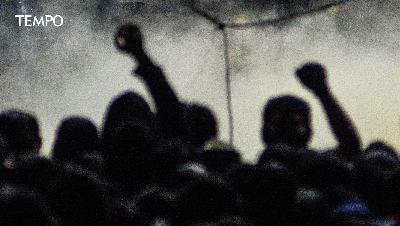
Prabowo Subianto has nothing to gain by supporting Jokowi’s reckless destruction of democracy. It will be a burden for his administration.
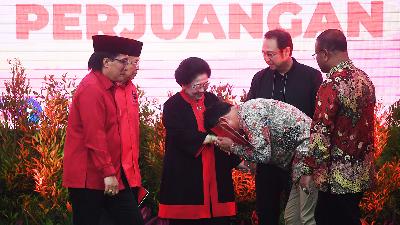
The PDI-P will be nominating Anies Baswedan in the Jakarta gubernatorial election. A popular candidate against Jokowi’s coalition.
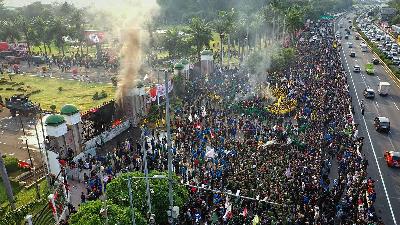
The government and the House failed to pass a revision of the Regional Head Election Law. Prabowo suggested that Kaesang Pangarep not run in the 2024 regional head elections.
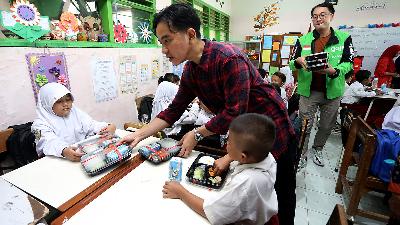
The trial of the free nutritious meal program involves military personnel and private parties. Authorities manage everything from communal kitchens to food distribution.
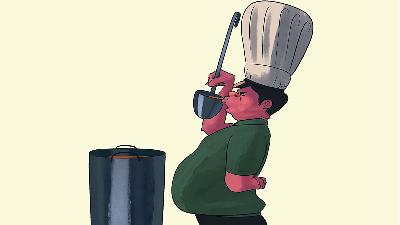
The 2025 State Budget accommodates several of Prabowo Subianto’s programs. Lobbying efforts are underway to ensure the smooth implementation of these priority programs.

KPK Deputy Chair Alexander Marwata talks about the sting operations and the independence of the anti-graft commission.
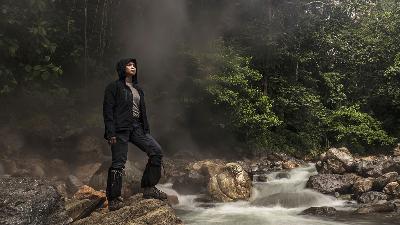
Farwiza Farhan, the winner of the 2024 Ramon Magsaysay award talks about conservation of the Leuser Ecosystem in Aceh.
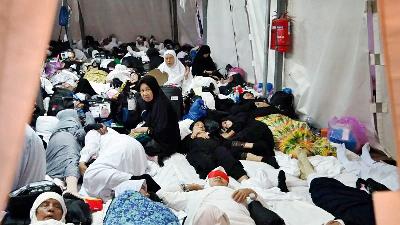
During the 2024 haj pilgrimage in Mina, some pilgrims were forced to sleep in cramped conditions. Some of accompanying haj officials did not go through a selection process.
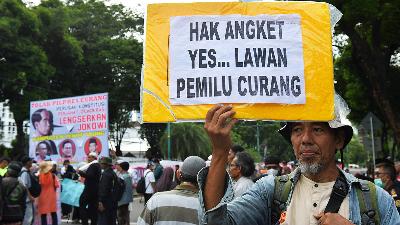
The right of inquiry to investigate alleged fraud in the 2024 elections is threatened to run aground in the House of Representatives (DPR), influenced by offers of ministerial seat in Prabowo’s cabinet.

The presidential election is not over yet. The lawsuit in the Constitutional Court shows that something is wrong in the 2024 presidential election.

Under the leadership of Airlangga Hartarto, Golkar sees a significant increase in votes during the 2024 General Elections. Part of it is due to the Jokowi effect.

Tempo’s Film Selection of 2023 created seven categories for the selected films.

Stock market enjoyed a bull run in 2023. Investors bet on a frayed assumption: six times rates cut in 2024.

The 2024 election debates should include culture and academic as themes, with the latter necessarily coming out of a concern how easy it is to obtain a doctoral degree.
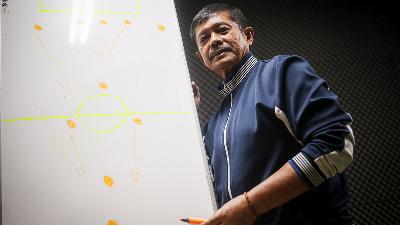
Head Coach of SEA Games National Soccer Team, Indra Sjafri, on his game strategy and the target for the 2034 World Cup.
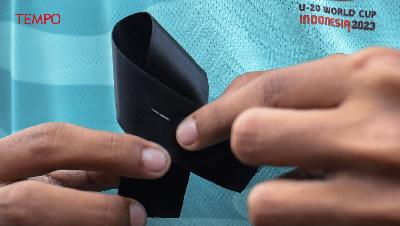
In the hands of politicians drunk on electoral politics, it is difficult for Indonesian soccer to develop. The cancellation of the U-20 World Cup is just collateral damage.
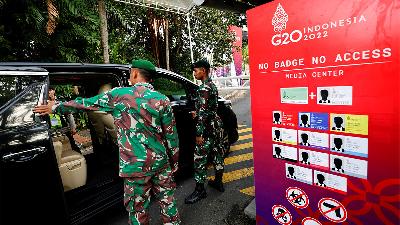
Preparations for the G20 Summit in Bali on November 15-16 are marked by allegation of repressions against civil society groups. The Indonesian government is deemed not serious about the issue of climate change, which is one of the main agendas of the G20 Summit.

Overwhelmingly prepared, the G20 Summit is not yet proven capable of inviting investments.
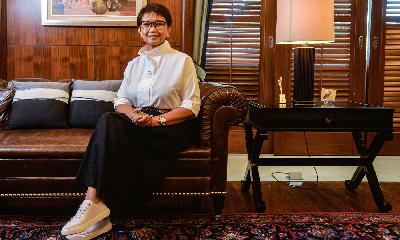
Foreign Minister Retno Marsudi speaks on Indonesia’s preparedness to host the G20 Summit in Bali, Russia’s invasion of Ukraine, and Myanmar’s agenda at the ASEAN Summit.
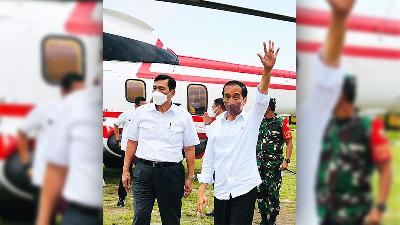
Ministers and senior officials from the government coalition are calling for the 2024 elections to be delayed. Like those of Sukarno and Suharto, Jokowi’s presidency could end in tragedy.

The Press Council gives its Award 2021 to Tempo in the printed media category. This award is for you, loyal readers.
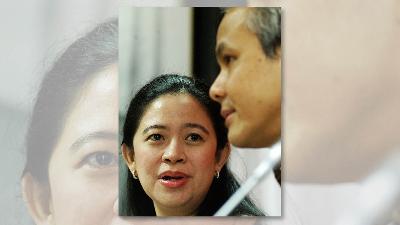
It is reported that President Jokowi gives the green light to a number of prospective candidates wanting to stand for the presidency. Is he seeking political protection post-2024?
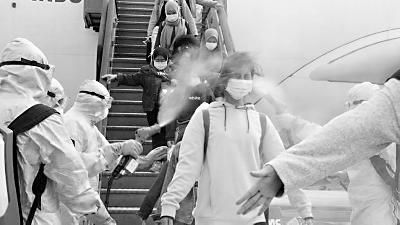
Apart from the Covid-19 pandemic that has changed our lives, there are some other events that shape our memories of 2020.
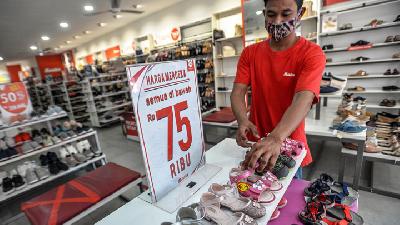
The government projected a reversal in economic conditions, from the current negative state to a rise of between 4.5 to 5 percent in 2021. Formidable challenges will be faced in recovering public consumption, investment, and realizing state expenditure.
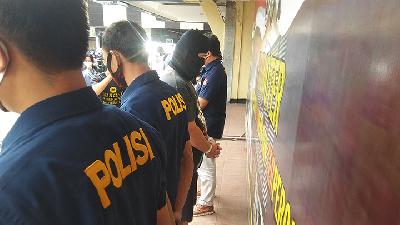
For 20 years, the altar boys of St. Herkulanus Parish in Depok were sexually abused. There have been efforts to cover up the crime.
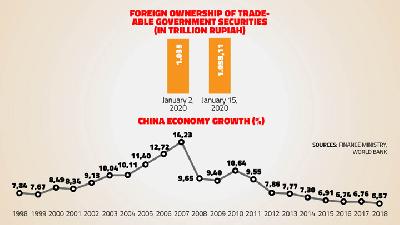
YEAR of 2020 arrived with a pair of boons for Indonesia. Firstly, the US-Iran war does not come yet, and the oil prices does not tapered off.

SHOES were all the talk. This was Jakarta in the early 20th century. To be precise: shoes were the talk, European schools, Dutch students, non-Dutch students, and behind it all, colonialism.
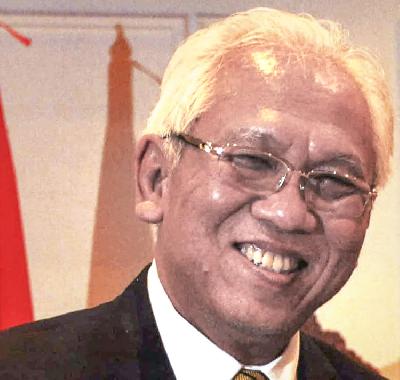
The Australian Police have arrested 274 Indonesian fishermen from 2008-2012.
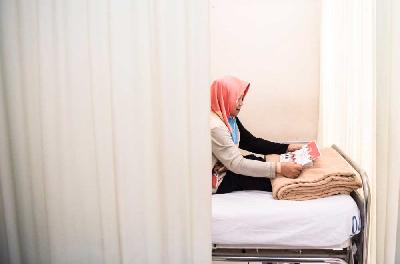
The predictions of some survey agencies for the 2018 regional head elections were off the mark in some areas. Looking to win big across Java, the PDI-P only won in one province. The camp opposing Jokowi is still solid.
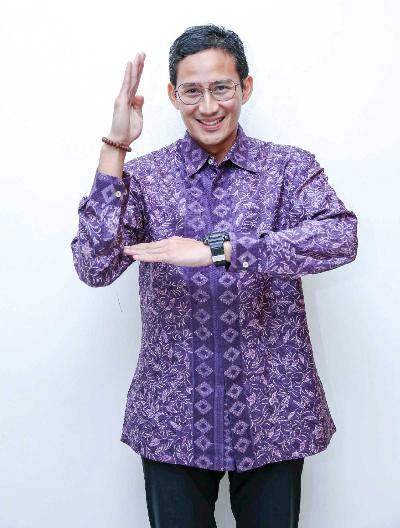
SANDIAGA Salahuddin Uno accepted a new duty last February: becoming Chair of the Gerindra Party 2019 Presidential Election Campaign Team. Sandiaga, 48, was personally appointed by Prabowo Subianto, the party's general chair.

President Joko Widodo has put off the completion target for the light rail transit (LRT) project until 2019. "I want to make certain that the LRT project development can be finished on time, either in 2018 or slightly later, to 2019," said Joko Widodo when opening a limited cabinet meeting last Monday. One of the stumbling blocks involves project funding.

As we enter 2017, the government has been busy seeking ways to stabilize the rupiah. With the Federal Reserve raising US dollar interest rates late last year, other world currencies, including the rupiah, have weakened. Our currency, which in the third quarter of last year averaged about Rp13,100 per US dollar, closed the year at Rp13,400. Unfortunately, the rupiah will continue to face pressure, given the Fed's plan to further raise interest rates this year.
It is no surprise that the government recently allowed mining companies to export their mineral ores. This is to increase exports and foreign exchange earnings, to help stabilize the rupiah. Previously, the government banned mineral exports to encourage mining companies to go up the value chain and build the smelter production phase. Under the new arrangement, 70 percent of ore production is allowed for exports, while the remaining is required to be sold to local smelter companies. Currently, there are about 30 plus local smelter facilities, some in various phases of construction, a few already completed.

Brexit forced economists to redo their projections for 2017. And, rightly so, as not long after the United Kingdom (UK) decided to leave the European Union (EU), its currency slumped to its lowest level in many years. The concern is that this nationalistic, anti-trade and anti-migration sentiment is gaining followers in other EU countries, which raises uncertainty over the future of the EU and its euro currency, especially with the upcoming elections in France, Germany, Italy and the Netherlands.
Forecasting became tougher when Donald Trump won the United States (US) general election. Although it's still uncertain what exactly his economic policies would look like, he did campaign to limit the flow of trade and migration, in particular, trade between China and the US and the flow of migrants between Mexico and the US, which could disrupt world trade.

The tax amnesty program that will run through March 2017 offers hopes of increased economic growth. The government may be euphoric over the additional revenues generated, but the success should not tempt it to rest on its laurels.
The much-touted tax amnesty program has managed to collect Rp93.6 trillion as of last September, albeit a far cry from the government's target of Rp165 trillion. While going at the target, the tax directorate-general might as well take advantage of the broad tax base to increase revenues next year.

One by one on that last evening in October 2015, the amateur performers introduced themselves. Within a very short time, the audience at the Yogya Cultural Center began to feel thoroughly amused by what they were watching.
The show was entitled 100% Yogyakarta. It did not feature any professional actors. All those up on the stage were ordinary people from around the city, including a parking attendant, a grave digger, a street tough, a housewife, a transvestite, a neighborhood association head, a teacher, and the head of a hardline Islamic organization.

Lying in state at the Adi Jasa funeral home on Tuesday, December 15, Ben Anderson was clad in a brown-colored Madura batik shirt. "That's my batik shirt," said Sugito, the driver who always accompanied Anderson since 2009 whenever he toured East Java. Sugito wiped his tears and tenderly touched the edge of the laced cloth covering the coffin.
Anderson arrived in Surabaya with his close friend, Edward Hasudingan, a.k.a. Edu, five days earlier. Both met in 2004 when Edu studied at Ithaca College in the United States. They stayed at Hotel Santika Pandegiling in Surabaya.

As we approach the end of 2015, it is becoming clearer that next year's global economic outlook will change. This will naturally result in business strategy adjustments, both in the real sector as well as investment portfolios in the financial sector.
The most imminent change will be the US Federal Reserve's rate hike and all of its consequences. Last Wednesday, the Fed chair, Janet Yellen, reaffirmed the possibility of an interest rate hike, which immediately brought down stock prices and exchange rates around the world.

It is only a month before the closing of company books for 2015. In retrospect, it has been quite a dismal year. In January, there were high expectations, being the start of President Jokowi's first year in office. But by the year-end, the results were disappointingly far below expectations. This year's economic growth is expected to reach only 4.8-5.0 percent, in contrast to the 6.0 percent target set by the new administration. The Rupiah and the Jakarta Composite Index (JCI), which began the year, respectively at Rp12,500 per US$ and 5,200 points, dropped considerably, settling at Rp13,600 per US$ and 4,500 points by year-end. With sluggish economic growth, businesses have been forced to adjust downward this year's revenue targets. Along with the decline in sales, companies have been busy cutting costs, which at times hurt employment. Unfortunately, the cost cuts are rarely able to match the drop in revenue. As a result, profits have narrowed across the board.
The follow-up question is whether our economy has reached its lowest point and that by next year it should start to recover? In various economic seminars towards year-end, numerous experts are facing difficulty in assessing next year's outlook. Even the optimistic scenario predicts this year's sluggishness will extend till the first half of the year and the recovery to take place only after mid-year. The problem, they argue, is that the level of volatility or uncertainty remains high.

The 2015 Frankfurt Book Fair ended in mid-October. As the guest of honor at the world's largest book fair, Indonesia chose the slogan '17,000 Islands of Imagination' to lead its presentation.
It was a huge success, although the team only had two years to prepare for the event, compared to the five to six years other countries had.

Hana Salomina Hikoyabi is an activist from Papua, who uses her bureaucratic savvy to get things done. She was vice chair of the Papua People's Assembly during the 2006-2011 period and is currently the head of the Regional Development Planning Board for Jayapura Regency. Hana founded the tabloid Suara Perempuan Papua (Voice of Papuan Women), to publicize issues related to violence against women, the need to acknowledge people living with acquired immune deficiency syndrome (AIDS), for information on access to justice and the conservation of Papua's mega-biodiversity.
The tabloid has been influential in changing perceptions on gender in Papua, and she is not giving up on the idea that women should continue aiming for 30 percent representation in the legislature. For her unrelenting advocacy to give voice to the women's plight in Papua, she was presented with the 2015 SK Trimurti Award by the Indonesian Alliance of Independent Journalists (AJI) at the beginning of September.

President Jokowi's 2015 revised government budget is his first, and, as such, is interesting to get a more detailed view of his policy spending priorities, how he expects to implement them and, more importantly, how to fund them. But, understanding where the government is spending its money this time is critical because the recent cut in fuel subsidies allows the government some real spending power to make a difference. A quick glimpse into the 288-page document, shows three areas that particularly stand out. They are infrastructure with a maritime bent, food security and social services.

FOR many Indonesians, 2015 began on a positive note: subsidized fuel prices had fallen with global oil prices. Premium gasoline dropped from Rp8,500 to Rp7,600 per liter, and automotive diesel oil went from Rp7,500 to Rp7,250 per liter.
With that in mind, President Joko Widodo was optimistic 2015 would bring improvements for the Indonesian economy, with the government able to cut subsidies and free up funds. "This money can be diverted to build infrastructure such as reservoirs, irrigation, toll roads and railways outside of Java," Jokowi said.

Sidney Jones
Director, Institute for Policy Analysis of Conflict (IPAC)
sjones@understandingconflict.org
Would-be terrorists killed four police officers and a military informant during the year, but the low death toll masked a high level of activity, much of it focused on getting to Syria. By December, 110 Indonesians had been identified as having gone to Syria to fight since mid-2013, including wives but not including those who went only briefly on humanitarian missions. Most left to join the Islamic State of Iraq and Greater Syria (ISIS), later simply called the Islamic State (IS), but some joined rival forces, including the al-Qaeda-linked al-Nusra Front. By mid-2014, concern was growing in government circles over how to prepare for the possible return of experienced mujahidin with the potential for revitalizing the jihadi movement at home.
ISIS-linked issues were not the only concern: the resurfacing of Jemaah Islamiyah as a well-structured organization with a systematic recruitment and training agenda was also a worry, as was the ongoing lack of a clear strategy for counter-radicalisation efforts. ISIS, however, attracted all the attention, particularly after its recruitment video, Joining the Ranks, was posted on YouTube on July 23, with an Indonesian fighter, Bahrum Syah, urging others to join the Islamic State. Officials in Jakarta saw this as a direct challenge to the Indonesian republic and on August 4, 'banned' ISIS. In the absence of any law or regulation outlawing membership, however, the 'ban' was little more than a policy directive. To this day, Indonesia has few tools at its disposal to deter people from pledging loyalty, travelling to Syria or coming back as combat-hardened fighters.

Manggi Habir*
As we close 2014 with a weak rupiah, a high domestic interest rate and a slowing economy, the only bright spot seems to be a new government with a new style of leadership that provides hope that changes will come. And, maybe the year-end is a good time to make an assessment on what we can learn for 2015. Let me start with the rupiah, as its weakness throughout the year does reflect alot of what is wrong with our economy.
On the rupiah's weakness, we must differentiate on the source of weakness where we have little control of and where we can do something. As it is always easier to blame others for our problems, the world's two largest economies would be high on the list of external sources of our currency's problems.
The US economy, because it is the only major economy that is growing well due to its loose monetary policy, has the US dollar becoming more attractive. But the Fed realizing that good things do not last forever, is concerned of potential inflation ahead and plans to raise interest rates, making the US$ even more desirable. Just remarks that it plans to raise rates has lead to massive conversions to US dollars worldwide. This year, the US dollar has strengthened against nearly all other currencies. However, as the emerging market currencies lack deep markets, the weakness is more apparent, which unfortunately includes our rupiah.

Philips Vermonte
Head, Department of Politics and International Relations, CSIS Jakarta
Indonesians have once again proven that they are indeed maturing towards democracy as the legislative and presidential elections passed rather peacefully. The noise and political tension were there, and will always be there, but they are two inseparable ingredients of our democracy. A good dose of political difference within the political community is needed to ensure that whoever is in power, does not govern with a blank check in his or her hand.
Having said that, however, questions remain: What do the 2014 elections signify? Are we consistently progressing towards democracy or are we regressing?

President Joko Widodo attended his first Association of Southeast Asian Nations (ASEAN) Summit in Naypyidaw, Myanmar, on November 12-13. He asserted during the meeting that Indonesia was ready to support the ASEAN Economic Community (AEC) free market in 2015. "Indonesia will not let itself be merely a market," he said.
According to Joko, an increase in inter-ASEAN trade will be the key to AEC success. "Within the next five years, I hope the value of trade between ASEAN member states can reach at least 35-40 percent," added the president. As of now, inter-ASEAN trade volume is 24.2 percent. He also urged other member states to work together in doubling the ASEAN GDP, from US$ 2 trillion to US$ 4 trillion, and reducing the poverty rate to 9.3 percent by 2030.
Rahmat Pramono, the permanent representative of Indonesia to ASEAN, said that Indonesia's readiness to face the AEC is only 82 percent. He sees the integration as an opportunity for economic growth. Sri Adiningsih, an economist from Gadjah Mada University said that Indonesia has been ASEAN's main support because of its central location in the region. "Our trade balance in the area, be it oil or non-oil, experienced surplus for a while," she said.

Pending economic problems await Joko Widodo and Jusuf Kalla's administration. In addition to the narrow room for maneuvering the budget, global economic uncertainty will be the economic challenge throughout 2015. Raising subsidized fuel prices is a policy option that must be taken as soon as possible.

The viewers watching the high-rated Q & A talk show at the Melbourne Town Hall in Australia, listened in amazement as Indonesian Health Minister NafsiahMboi shared her experience in advocating the use of sterile needles for human immunodeficiency virus (HIV)-infected drug addicts. Recalling one meeting when policymakers challenged her plan, Nafsiah responded: "Do we want to kill them or do we want to save them? The easiest way would be to kill them," she said, stressing her point. That shocking quote,went viral on social media.
Indeed, 74-year-old Nafsiah, who has been a public health activist for the past 40 years, tends to be emotional when discussing the issue of acquired immunodeficiency syndrome (AIDS), an issue that is close to her heart. In 2004, she was one of the conceptors of the Sentani Commitment, which became a milestone for the central and provincial governments in battling AIDS. In 2006, she was named executive secretary of the National AIDS Commission (KPA) and was so effective, her subsequent post as chairperson of the The Global Fund, an international funding institution for AIDS, TBC and malaria in 2013, seemed a natural progression.

As the UN's Millennium Development Goals approaches its 2015 deadline, nations are coming together to draft a new global development agenda. Democratic reform within the UN is deemed critical to the process.

A look back at some of the year's stories covered in these pages that resonated the most in 2012.

The Lapindo mudflow is expected to cease only in 2037. It should be ascertained that the disaster will not expand.

The beginning of the year is the time when we jot down some notes about the year that has just passed. And, as in previous years, we decided to scratch in the names of artists we believe have enriched the artistic treasures of Indonesia. After discussions and debates, finally we made our selection.
It is no accident that those who have courageously made refreshing breakthroughs in 2010 are for the most part young people. Here are the leading figures in the arts in 2010 selected by Tempo.

The Indonesian economy during the first three months of this year has shown faster growth than that of the last quarter of 2009. Both exports and investments have risen despite the lack of recovery of the world economy. Nevertheless, there are now indications of stagnation. If the government does not want the economy to slow down, it must control the price of food, increase the intermediary role of banks and sort out what is slowing down expenditure of the State Budget.

Government investment expenditure in 2010 for infrastructure will be low. There is doubt that economic growth will be able to reduce poverty and unemployment.

Indonesia's economy started to slow down in the fourth quarter of 2008. The growth was only 5.2 percent, a big drop from the previous quarter's 6.1 percent. This year, the export performance and domestic consumption that are drivers of Indonesia's economy will weaken. If banking funds continue to drag and be expensive, it's likely that the growth will be negative.

The G-20 Summit approved reform of the IMF and World Bank. The voting quota of Europe was questioned. Japan and China have the potential to rise.

Each year Tempo chooses people believed to have most contributed to the advancement of Indonesian art and architecture. This year our choice went to those who have produced fresh ideas, breaking away from conventionality and rigidity. In architecture, in particular, a new criterion was added: environmental awareness. In the process of selection, the following names made the list as Tempo’s Artists of the Year 2007: Ugo Untoro, Deddy Mizwar, Zen Hae, Tri Rismaharini, Amran Nur, Romo Johannes M. Hammerle, and Laretna.

Demand for electricity in Java and Bali is on the increase. Supply is inadequate. A new electric power station will not start operating until 2006. Signs of more frequent blackouts?

GAMAL Nasir has more than 30 years of experience working with the government's agricultural department. A graduate in agricultural economics from Padjajaran University, he believes that Indonesia produces many valuable commodities that can do well in the international market, and cocoa is one with the most potential among them.
Today, Indonesia is the world's third biggest producer of cocoa beans after Ghana and the Ivory Coast, producing more than 700,000 tons last year. Yet, Gamal feels that Indonesia can do better. Some 1.7 million hectares of cocoa plantations are spread throughout the archipelago, planted and managed by 1.6 million farmers. "This commodity has so much potential, we can probably be the second largest, or even the number one producer of cocoa beans in the world," he claimed.

Retired Swiss architect Bernhard Bart is the spirit behind the revitalization of the age-old songket or woven sarong, made only by the Minangkabau people of West Sumatra. Described by Bart as the worlds most exquisite woven cloth, songket today is almost extinct and can only be found in museums. Aided by local artists and weavers, Bart has produced replicas of antique songket, revolutionizing its weaving techniques in the process. It used to take two years to complete one piece but today a songket can be produced in just two months. Collectors now seek these beautiful cloths created by Bart and his colleagues, and they are exhibited in many shows and venues. What are the challenges of reviving the ancient art of weaving? A look at a new-old home industry by Tempo English Edition in West Sumatra.

IT is not unusual for Jusuf Kalla to meet with Vice President Boediono. The two often meet at events in Jakarta, where they have friendly chats.
The two met again a few days after August 22, when the Constitutional Court decided in favor of running mates Joko Widodo and Jusuf Kalla in the disputed results of the presidential election. At this meeting, Boediono shook Kalla's hand and congratulated him. "Pak Boediono told me, 'I will be giving you back your old office'," said Kalla with a laugh, quoting Boediono, two weeks ago. Indeed, the office of the vice president, which Boediono occupied will now revert back to Kalla.
Independent journalism needs public support. By subscribing to Tempo, you will contribute to our ongoing efforts to produce accurate, in-depth and reliable information. We believe that you and everyone else can make all the right decisions if you receive correct and complete information. For this reason, since its establishment on March 6, 1971, Tempo has been and will always be committed to hard-hitting investigative journalism. For the public and the Republic.